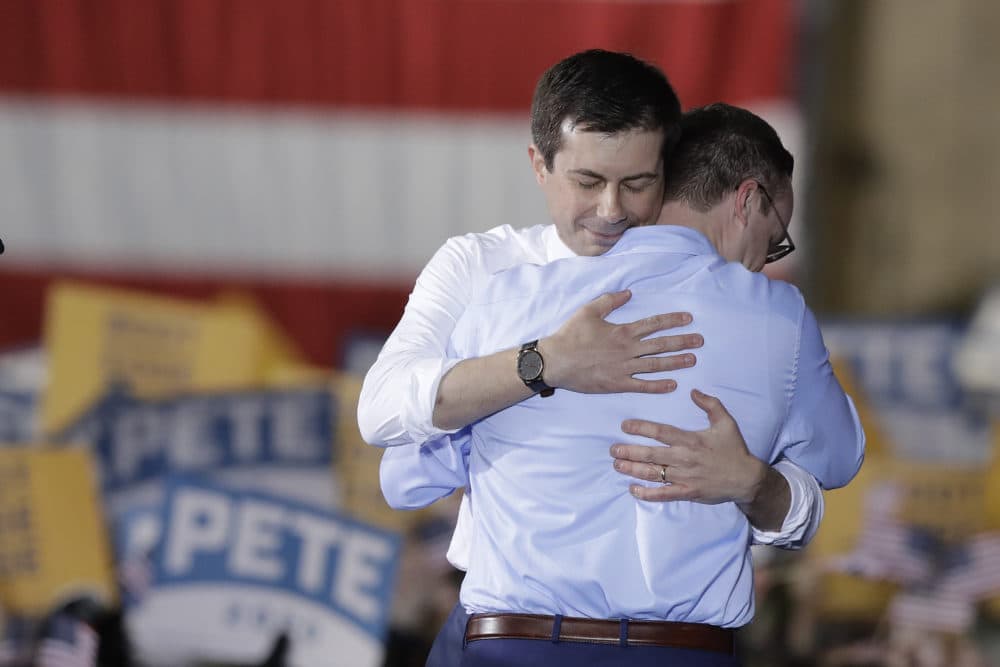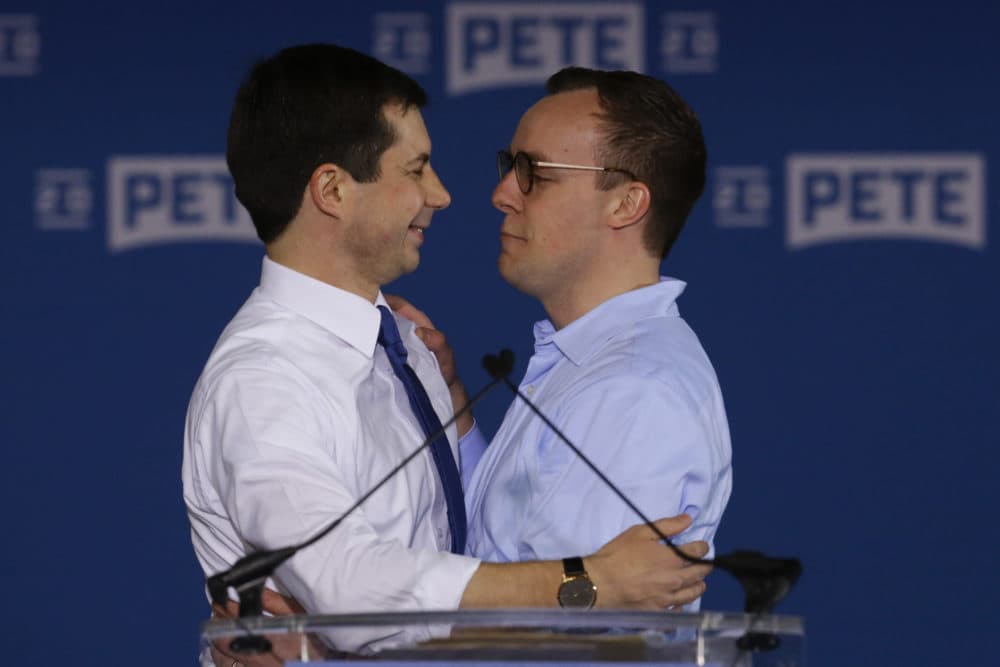Advertisement
commentary
Pete Buttigieg Is Inspiring Us To Come Out — Again

This week, South Bend, Indiana Mayor Pete Buttigieg and his husband, Chasten, appeared on the front cover of Time magazine with the headline “First Family.” Apart from the historic nature of Mayor Pete’s candidacy, however, his candidness about being both openly gay and openly Christian has stirred an awakening for many similarly situated LGBTQ+ Christian Americans, prompting us to finally and fully “come out,” claiming both our sexual identity and our religious faith in all settings, not just selectively or advisedly. I count myself among the newly emboldened.
Like Mayor Pete, I was a bit of a late bloomer, coming out at the age of 30. Many factors held me back, including the official teaching of my Catholic faith, perceived family expectations and my own fears that being gay would deprive me of a host of professional and personal aspirations. Like Mayor Pete, I did all I could do to deny my reality and make dating women work.
In the intervening years since coming out, I have reconciled my faith with my sexuality and been fortunate enough to find a local Catholic community that supports me fully for who I am, as someone who, in the words of Psalm 139, is “fearfully and wonderfully made.”
Because I worship in a community with many openly LGBTQ+ persons I know many LGBTQ+ persons of faith. That Mayor Pete is an openly gay Christian, then, does not strike me as extraordinary. For many less familiar with LGBTQ+ persons of faith, though, a LGBTQ+ Christian is still viewed as an oxymoron, fundamentally incompatible and problematic.

For those who do not share this dual, intersectional identity, let me explain.
For many gay Christians, even after we “come out” about our sexuality, we typically find that we have a whole new array of identities to manage, shade, cover over, worry about and, sometimes conceal. It took me a long time to find a Catholic church where I knew it was OK to let those around me in the pews — as well as the clergy and other ministers who work in the church — know that I was gay. Even when I did, I found that attending services at other Catholic congregations was often fraught: I learned to keep this aspect of myself on the down-low to avoid causing a kerfuffle.
A few years ago, when friends asked me to be godfather to their newborn daughter, I was advised to not let the priest know that I was gay because this might disqualify me for the role. Imagine how it felt for me, a weekly communicant who probably knows more about the Catholic faith and its teaching than 90% of godfathers currently on the market, to be forewarned about how revealing an aspect of my creation would likely disqualify me from being a godparent.
Advertisement
The situation is far worse for those gay Christians whose vocational calling might be to work professionally for a church-related entity, whether as a musician, a teacher, a coach or a youth minister. And so, even after we come out, gay Christians can find ourselves needing to be circumspect, cautious about who knows what about us when we enter into our community of faith.
I've sometimes seen a furrowed eyebrow when I announce ... in a gay bar that I am tied up the next day with a church event.
But the pressure to manage our identity doesn’t end there: We can also face a mirror version of the “coming out” dilemma when occupying gay-dominated spaces, such as gay bars, Provincetown, Fire Island, drag shows or Ru Paul watch parties. We often worry that if we out ourselves as practicing Christians, we may be quickly labeled as self-hating, strange, or perhaps just a bit odd. I’ve sometimes seen a furrowed eyebrow when I announce at the end of a Saturday evening in a gay bar that I am tied up the next day with a church event. At times, the judgment isn't merely non-verbal. Friends have asked, “What do you get out of that?” or “You go to church?” with the same bewilderment as if I'd declared my intention to boil puppies the next morning.
And so, despite the courage it took to come out the first time, many of us still find ourselves playing the same exhausting balancing act in the gay world as we do in the church world, trying to find spaces where it feels safe and comfortable to let people know our full story.
Mayor Pete’s decision to be public about being both gay and Episcopalian — his decision to say that both of these matter, make him who he is and inform his life-choices and his policy formation — has already done so much to eviscerate this invidious closet. He animated my LBTQ+/Christian friends with new-found courage. One friend described her “second coming out” as a relief, saying that she didn’t realize how burdened she had felt managing both aspects of her identity for so many years, until she decided to stop managing and start telling. Just a week ago, we witnessed the Mormon valedictorian of Brigham Young University, Matty Easton, come out declaring, “I am proud to be a gay son of God.”
For me and for others whom I know, this moment is a “coming out, take 2.” Whatever the fate of Mayor Pete’s campaign, his candidacy — and his candidness — have already made a difference for a substantial swath of people who, having come out once, are finding the courage to come out again, claiming their rightful place in two communities that aspire to inclusion even as they sometimes unwittingly fall short. That, it seems to me, is a win for all.
